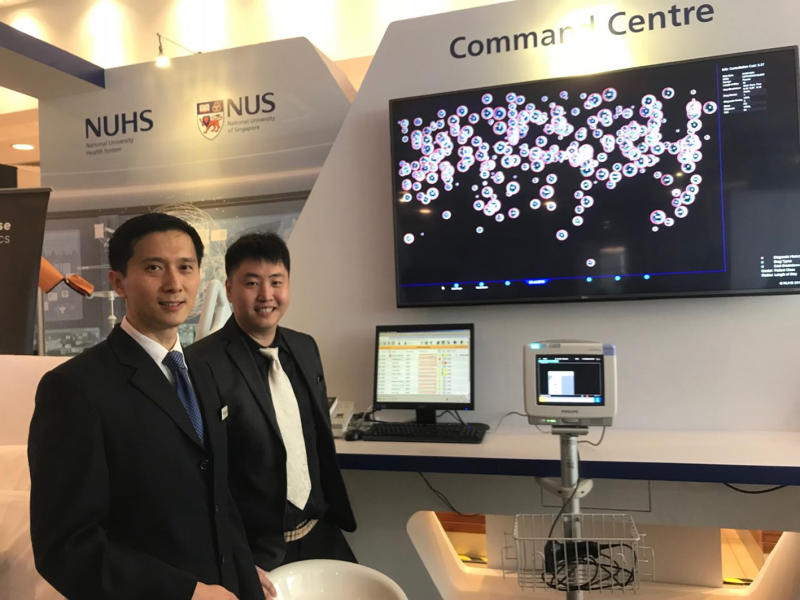New expo showcases artificial intelligence tools that could boost Singapore's health sector
Sign up now: Get ST's newsletters delivered to your inbox

Dr Ngiam Kee Yuan, NUHS's group chief technology officer (left), and Dr Feng Mengling, assistant professor from the NUS Saw Swee Hock School of Public Health, presenting the Command Centre, part of NUHS' new artificial intelligence system, Discovery AI.
ST PHOTO: MADHUMITA PARAMANANTHAM
SINGAPORE - Outpatients could soon get to bypass snaking queues when they turn up for a clinic appointment, by simply peering into a camera.
A new facial recognition tool notifies medical personnel when high-risk patients arrive so they can then decide whether the patients can be given prioritised care.
The technology was showcased on Friday (July 6) at the National University Health System (NUHS) building at Singapore's first ever public Healthcare AI datathon and Expo.
The event encourages tech experts and healthcare professionals to come together to develop artificial intelligence (AI) and smart tools to tackle challenges in the healthcare sector such as limited manpower.
The six-day event, which runs till Sunday (July 8), has been organised jointly by NUHS, the National University of Singapore, AI Singapore - a programme set up to enhance artificial intelligence capabilities in Singapore, and the Massachusetts Institute of Technology.
Dr Ngiam Kee Yuan, NUHS' group chief technology officer said: "It (AI) could augment the work of Singapore's healthcare workforce and enhance doctors' ability to make better decisions."
Dr Ngiam and Dr Feng Mengling, assistant professor at the NUS Saw Swee Hock School of Public Health, introduced NUHS' own AI system during the expo: Discovery AI.
The tie-up of different AI tools, they hope, will enhance clinical diagnoses, flag higher-risk patients and ease the burden on healthcare teams in managing patients.
Discovery AI, which has been in the works for four years, pools pertinent data such as patients' medical history, lifestyle habits and history of admission in hospitals.
Using the data, it can perform tasks including the diagnosis of appendicitis in those with complaints of stomach pain and even predict the risk of re-admission in patients who have been warded for various medical conditions.
This will allow doctors to follow up with at-risk patients and adjust their treatment methods to include components such as video conferencing with patients after they have been discharged.
The AI platform is being tested at several wards in the National University Hospital and is expected to be deployed in phases across NUHS institutions such as Ng Teng Fong General Hospital and Alexandra Hospital in the coming years.


